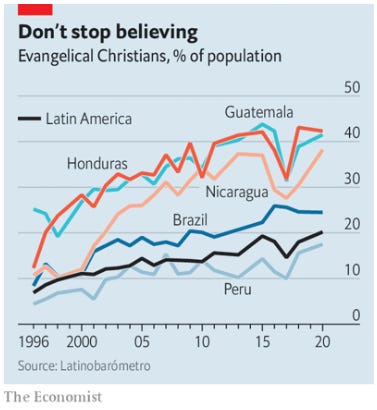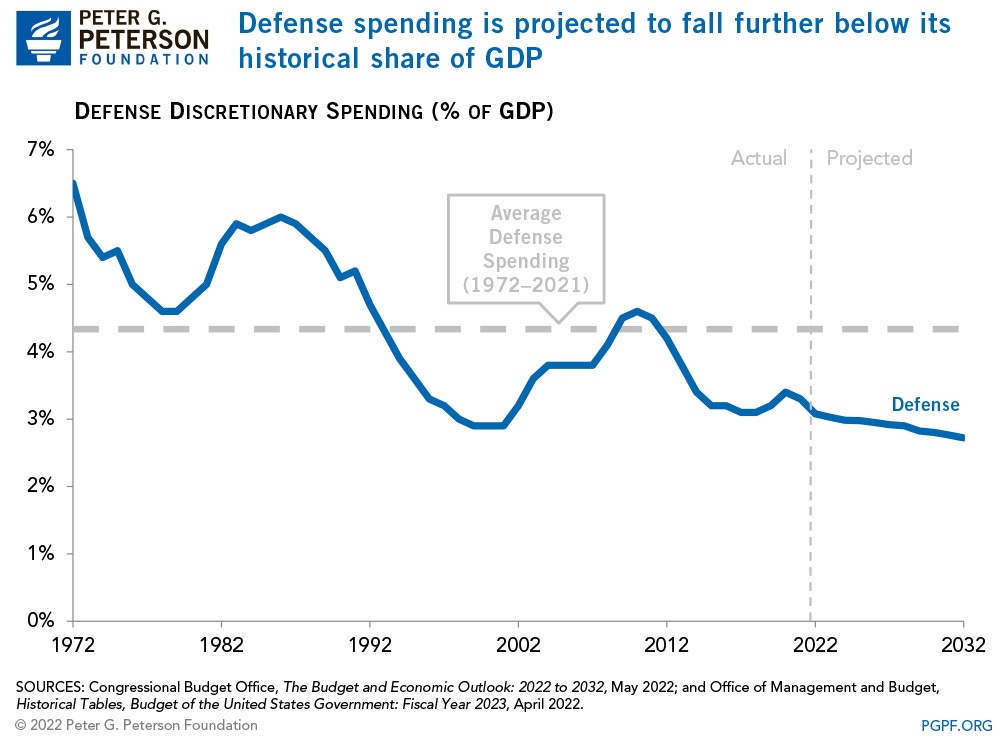As always, if you have any topics you want me to look at or recommendations, feel free to send them my way.
Happy reading :)
-TK
📩 If you enjoy reading fD, please consider sharing it with someone you think would like it.
👨👩👧👦📉 China is expected to be at half its current population by 2066, with most of the world already below replacement level fertility. (Palladium | Malcolm Collins, Simone Collins | Apr 2023)
Birth rates are falling much faster than many dominant narratives imply. The global fertility rate for all of Latin America and the Caribbean fell below the replacement rate of 2.1 babies per woman in 2019. India will achieve that status in 2024. China is expected to be at half its current population by 2066. First-generation immigrants to the US fell below the replacement rate in 2019. Already, 115 countries representing about half the world’s population are beneath replacement, and by the end of the century nearly every country in Africa is projected to have a rapidly declining population.
The article’s outlook is slightly more technological than how I’d think about it, but I agree that declining birth rates are a serious global challenge, and they’ll be the root cause of turmoil in all aspects of our lives: economic, national, spiritual, etc. I’d wager more so than climate change, that this is going to be the challenge of the century.
People underestimate how quickly this effect will be felt. South Korea currently has a total fertility rate of 0.81. For every 100 South Korean great-grandparents, there will be 6.6 great-grandkids. At the 0.7 fertility rate predicted in South Korea by 2024, that amounts to 4.3 great-grandkids. It’s as if we knew a disease would kill 94 percent of South Koreans in the next century.
In most of the world, we’re basically already living out a graduated Children of Men scenario where many nations face virtual extinction1, maybe not in 1 generation but in 3-4. No need to wonder about the social implications of such a sci-fi scenario and its attendant loss of meaning and order, we’re living in one.
The piece doesn’t go into as much detail as I’d like but it does attempt to address an intuition that I think most people have about this:
Many people have the intuition that when a population crashes, the amount of resources left to go around will increase on a per-person basis and this boost in individual prosperity will create a new homeostasis at which populations reach a sustainable, more-or-less constant level, or even start to grow. This intuition is wrong on three fronts.
And some of the reasons why this is happening:
Our economy is structured in a manner that organically identifies and maximally utilizes talent to create short-term marginal productivity. The system differentially sorts for the most potentially productive among us, and then offers them money and status to forgo other life activities that don’t create immediate productivity…
No one gets financially rewarded in our current system by structuring cities in a way that invites the creation of large families. In fact, many will be punished if this pressure exists by local companies having less worker time, for example. For this reason, the centers of productivity in a modernized economy will intrinsically be suboptimal environments for raising large families.
Loosely, I think this is one of the foundational causes for declining birthrates: we live in societies structured around powerful interests and institutions that benefit from arrangements that maximize the economic output of human capital in the short-term, with minimal consideration for reproduction much less family life, to the detriment even of their own long-term economic self-interests.
✝️🌎 After centuries of Catholic dominance, 20% of Latin Americans now identify as evangelicals, up from 10% in 2002 (Economist | Apr 2023) (WSJ | Francis X. Rocca, Luciana Magalhaes, Samantha Pearson | Jan 2022)
I read about this last year in the WSJ, which highlighted the rise of Pentecostalism in contrast to a Catholic Church that more and more people felt materially and spiritually absent in their lives: “the Catholic priests wouldn’t even have coffee with us”.
Pentecostalism’s loose organizational structure has helped it make inroads into Latin America’s poorest neighborhoods, where churches offer material as well as spiritual help. Lay-led churches with flocks as small as a few dozen families organize donations of rice and beans for hungry families, fund soccer clubs for young boys to lure them away from drug gangs and organize private healthcare as an alternative to Brazil’s failing public hospitals.
According to the 2014 Pew survey, the most popular reason given by former Catholics in Latin America for embracing some form of Protestantism was to have a more personal connection with God, cited by 81% of respondents. Nearly six in 10 said they left Catholicism because they found “a church that helps member
The shift in religious belief is also creating downstream political impacts:
In countries such as Brazil, conversions to Pentecostal Christianity have boosted socially conservative views from the favelas to the halls of Congress, helping to propel right-wing President Jair Bolsonaro to power in 2018.
Guatemala has had three evangelical presidents over the past few decades. Politicians elsewhere court the religious vote. Days before Brazil’s presidential run-off in October, Luiz Inácio Lula da Silva, who won with a slim 1.8-percentage-point margin, published an open letter in which he promised not to close down churches and said he was against abortion.
On social changes:
Many Pentecostals preach the “theology of prosperity”—more commonly known in the U.S. as the Prosperity Gospel—which holds that God’s grace is reflected in material wealth. At Solomon’s Temple in São Paulo, suited men regularly line up at the altar with velvet red sacks and credit-card machines to receive offerings as the pastor promises his followers that they too will get rich if they donate generously.
Tithes and the profits from a business empire run by Brazil’s evangelical churches, which includes television networks and cruise companies, have given the movement a financial firepower that enables it to expand into poverty-stricken suburbs and fund political campaigns.
💰🔫🇺🇸 Matt Stoller tweets, US defense spending is at a multi-decade low of 3% of GDP
Thought this was an interesting data point. I definitely had no intuition about this and if anything would have thought it’d be relatively higher.
🗣🤖 Businesses are hiring “prompt engineers” who can utilize large-language AI systems effectively (WSJ | Jackie Snow | Apr 2023)
LinkedIn says the use of the terms ChatGPT, prompt engineering, prompt crafting, generative AI and generative artificial intelligence in member profiles increased 55% globally in February from January and then 71% in March from February.
👨🍳🥗 A profile of chef and food writer Yotam Ottolenghi profile, who may be more responsible than anyone for why fusion Mediterranean seems to the flavor of modern global cuisine today (FT | Tim Hayward | Apr 2023)
His style is hard to pigeonhole, but his reputation was built on recipes that fused Middle Eastern, Mediterranean and north African influences without being inconveniently authentic to any single culture — and that involved, initially at least, an ambitious list of hard-to-find ingredients. That you can find sumac and pomegranate molasses in a supermarket today, that you enjoy your broccoli charred or that your dining table looks ever more like a hundred-dish, multicultural picnic, is merely the resultant Ottolenghi Effect.
If not extinction, then radical, maybe catastrophic, transformation





